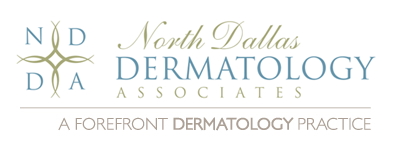NDDA’s Dermatologists’ Top Tips
- Posted on: Sep 21 2015
The skin is the largest and most visible organ of the human body. It protects your other organs, warms you up and cools you down, and reflects how healthy you are inside. Keep your skin, hair, and nails healthy and looking their best by following these practical tips from our dermatologists.
Skin care
- Because skin care products are not subject to approval by the U.S. Food and Drug Administration (FDA), their benefits may not be adequately tested and their claims may be exaggerated. Ask your dermatologist for recommendations for skin care products that have strong science behind them and have been proven safe and effective in human studies.
- Wear a daily moisturizer with sunscreen of 30 and consider using products containing antioxidants because they also have sun-protection properties. At night, consider using products containing retinoids, peptides or growth factors for their repair properties.
Skin cancer
- Get to know your skin. If something is bleeding or doesn’t look right, see your dermatologist. A full body skin exam should be performed annually by your dermatologist.
- Skin self-exams should be performed at home and be a regular part of your healthy lifestyle.
- Screen the one you love for skin cancer. Recent research shows that involving a partner in the skin self-examination process can improve the early detection of skin cancer. Give the gift of life and health by screening your loved ones on popular holidays such as Valentine’s Day, Mother’s Day, Father’s Day and Grandparents Day. Or as I like to say, get your birthday suit checked out on your birthday!
Stress and the skin
- Stress can worsen psoriasis, rosacea, acne, cause brittle nails and ridging of the nails, lead to hair loss, worsen or cause hives, and induce excessive perspiration. See your dermatologist for effective treatments that can improve your skin, hair, and nail conditions and also substantially reduce your stress.
- Consider using stress-management techniques such as yoga, walking, mediation or taking a bath.
Cosmetic procedures
- If you’re considering purchasing any at-home kit to improve the look of your skin, such as a microdermabrasion kit, talk to your dermatologist first. Safety can be a concern if these at-home treatments are used improperly or if an active ingredient causes an unforeseen skin reaction. It also is important to know that the concentration of active ingredients in these products are typically much lower those used by skin specialists. Therefore, most at-home treatments do not produce results that are as dramatic or long-lasting as the cosmetic procedures performed in dermatologists’ offices.
- Talk to your dermatologist about how lasers, wrinkle fillers and botulinum rejuvenation can be used to diminish signs of aging that concern you.
Pedicures
- If proper sanitation is overlooked, pedicures can pose serious health risks for nail salon patrons – including fungal infections and antibiotic-resistant staph infections. To minimize the risk of getting a nail infection, ask your nail technician how the instruments are cleaned. Avoid any salons that don’t appear clean. If you regularly get pedicures, consider buying your own instruments and bringing them with you to use at the salon to further minimize the risk of contracting an infection.
- The cuticle is the nail’s protective barrier and should not be pushed back or clipped, which can damage it and increase the risk of infection. Smoothing the surface of the nail too aggressively with nail files and buffers at the base of the nail also can damage the cuticle.
The best way to avoid being misled by myths concerning skin, hair or nails is to discuss any questions or concerns with one of our dermatologists!
Posted in: Uncategorized





